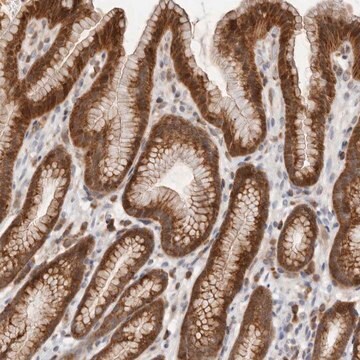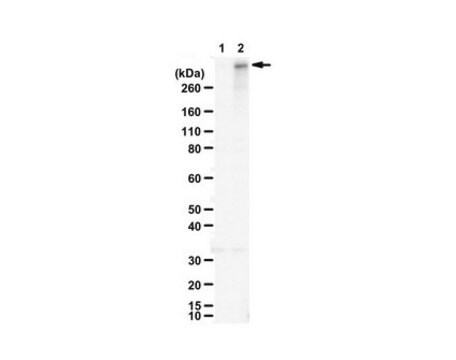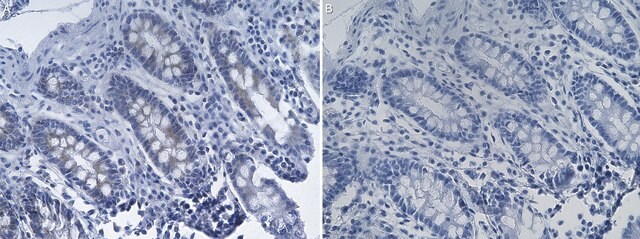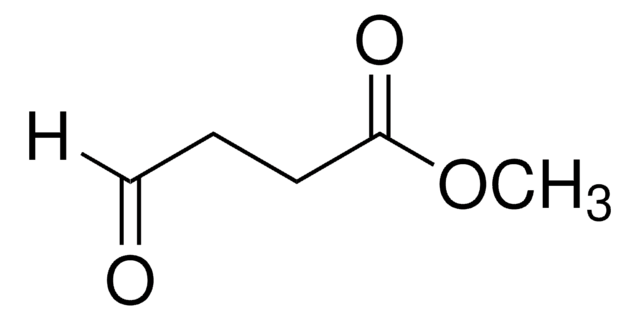ABN1474
Anti-RNF213
from rabbit, purified by affinity chromatography
Synonym(e):
E3 ubiquitin-protein ligase RNF213, EC:2.3.2.27, ALK lymphoma oligomerization partner on chromosome 17, Mysterin, RING finger protein 213, RING-type E3 ubiquitin transferase RNF213
About This Item
Empfohlene Produkte
Biologische Quelle
rabbit
Antikörperform
affinity isolated antibody
Antikörper-Produkttyp
primary antibodies
Klon
polyclonal
Aufgereinigt durch
affinity chromatography
Speziesreaktivität
human
Verpackung
antibody small pack of 25 μg
Methode(n)
immunohistochemistry: suitable (paraffin)
western blot: suitable
Isotyp
IgG
NCBI-Hinterlegungsnummer
UniProt-Hinterlegungsnummer
Posttranslationale Modifikation Target
unmodified
Angaben zum Gen
human ... RNF213(57674)
Verwandte Kategorien
Allgemeine Beschreibung
Spezifität
Immunogen
Anwendung
Neurowissenschaft
Western Blotting Analysis: 2 µg/mL from a representative lot detected RNF213 in 10 µg of HEK293 cells transfected with 3XFLAG RNF213 WT.
Qualität
Western Blotting Analysis: 2 µg/mL of this antibody detected RNF213 in 10 µg of HUVEC lysate.
Zielbeschreibung
Physikalische Form
Lagerung und Haltbarkeit
Sonstige Hinweise
Haftungsausschluss
Sie haben nicht das passende Produkt gefunden?
Probieren Sie unser Produkt-Auswahlhilfe. aus.
Analysenzertifikate (COA)
Suchen Sie nach Analysenzertifikate (COA), indem Sie die Lot-/Chargennummer des Produkts eingeben. Lot- und Chargennummern sind auf dem Produktetikett hinter den Wörtern ‘Lot’ oder ‘Batch’ (Lot oder Charge) zu finden.
Besitzen Sie dieses Produkt bereits?
In der Dokumentenbibliothek finden Sie die Dokumentation zu den Produkten, die Sie kürzlich erworben haben.
Unser Team von Wissenschaftlern verfügt über Erfahrung in allen Forschungsbereichen einschließlich Life Science, Materialwissenschaften, chemischer Synthese, Chromatographie, Analytik und vielen mehr..
Setzen Sie sich mit dem technischen Dienst in Verbindung.







